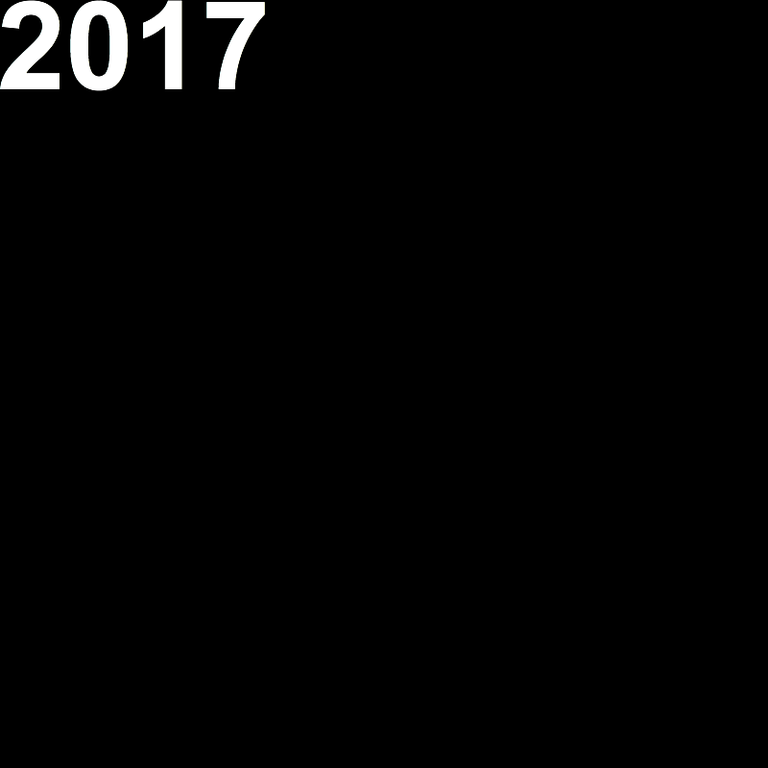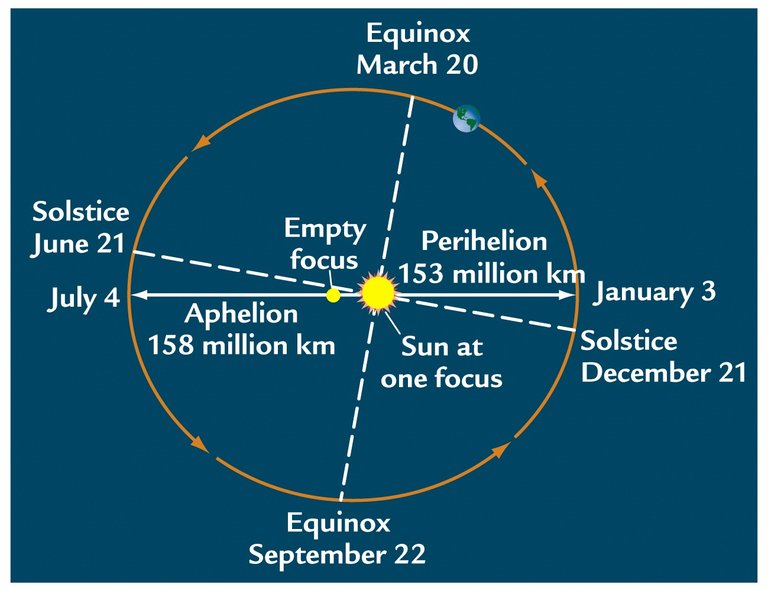2017 is almost done and gone, just a few more daze to complete things and put this orbit of Sol to rest forever.

Actually 3rd of Jan (well Tuesday, January 2, 2018 at 9:34 pm PST in my time zone on the west coast) is Earth-Sol Perihelion, Earth's closest approach to Sol. Hmmm, the calendar seems to be off a few days... actually perihelion isn't on the same day every year so that would be confusing... if new years day shifted every year...
Anyway at perihelion we turn the corner of the huge ellipse and head out towards the long end of the orbital loop, that big grand loop around that glorious ball of fusion in the sky that gives us life as long as we don't get too close or it doesn't come this way...
"Earth's Perihelion and Aphelion. The Earth is closest to the Sun, or at the perihelion, about 2 weeks after the December Solstice, when it is winter in the Northern Hemisphere.
Perihelion, Aphelion and the Solstices - Time and Date"
https://www.timeanddate.com/astronomy/perihelion-aphelion-solstice.html

The solstice and perihelion bracket about a fortnight of festive celebrations because humans feel relieved that we didn't keep heading towards Sol for a fiery death... we're melting... ahhhh... phew that didn't happen, a collective sigh of relief. Thus all the celebrations for about two weeks, a fortnight.
Of course then very late in the game the Christians usurped the festivities for their "holy days" aka "holidays" (yup that is the etymology of holiday (see reference 1))... more recently some Christians get offended when someone says "Happy Holidays" as if for some reason telling a religious person to have "Happy Holy Days" is a massive offense or something, oh well, when you're stricken by faith you'll believe anything the Fox or other preachers tell you to believe. What's hard to believe is that The Simpsons is produced by Fox. Go figure.
In any event many people celebrate the return of the light, as in day light, with days getting longer again. After Perihelion the pace of days getting longer increases until we begin to approach the Summer Solstice then it slows down again.
The cycle repeats itself. "Life repeats itself. In the village, in the village, in the village. Who would be unwilling to repeat."
Now what? Oh yeah, 2018. See it.
References:
1: "holiday (n.)
1500s, earlier haliday (c. 1200), from Old English haligdæg "holy day, consecrated day, religious anniversary; Sabbath," from halig "holy" (see holy) + dæg "day" (see day); in 14c. meaning both "religious festival" and "day of exemption from labor and recreation," but pronunciation and sense diverged 16c. As an adjective mid-15c. Happy holidays is from mid-19c., in British English, with reference to summer vacation from school. As a Christmastime greeting, by 1937, American English, in Camel cigarette ads.
holiday (v.)
"to pass the holidays," 1869, from holiday (n.). "
https://www.etymonline.com/word/holiday